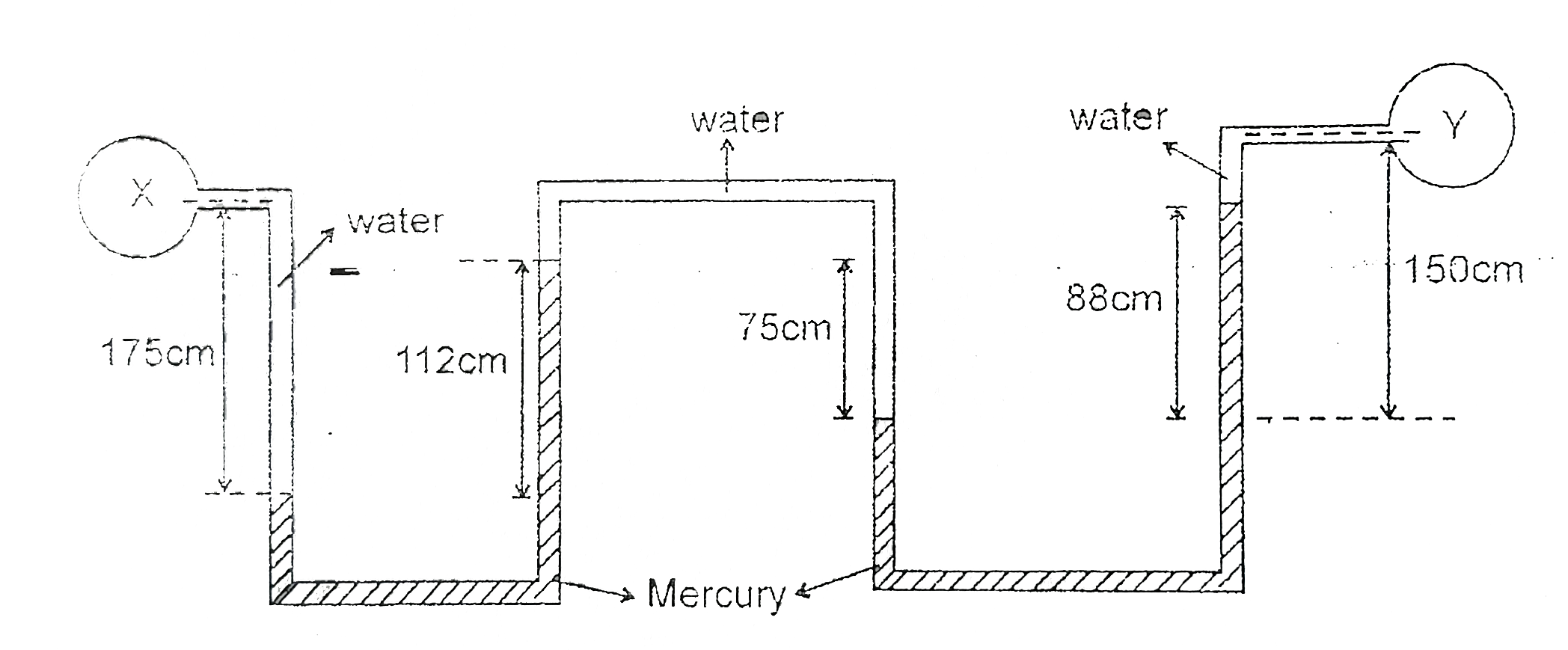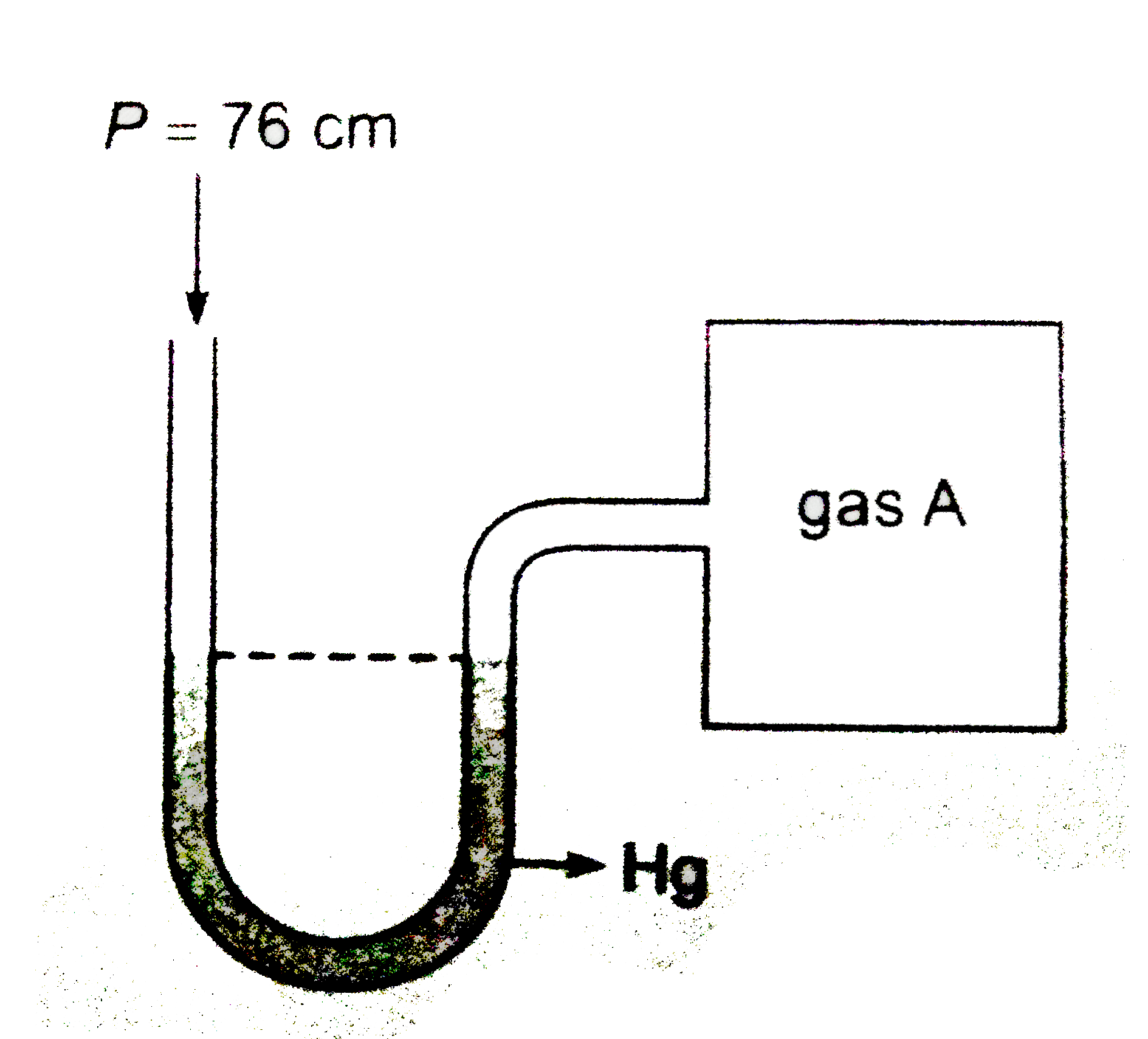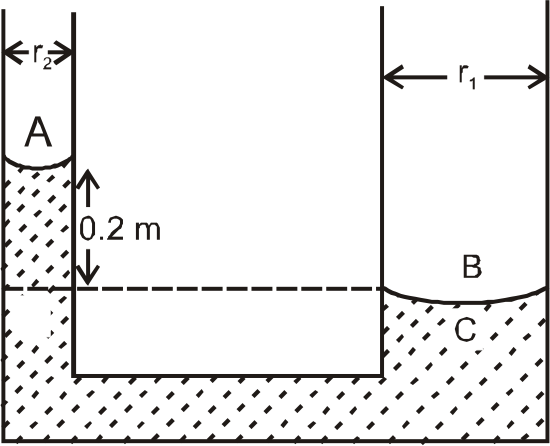Assertion: An open-tube manometer is a useful instruement for measuring pressure differences.
Reason: 1 bar =105 Pa.
Step by step video solution for Assertion: An open-tube manometer is a useful instruement for measuring pressure differences. Reason: 1 bar = 10^(5) Pa. by Physics experts to help you in doubts & scoring excellent marks in Class 11 exams.
Updated on:21/07/2023Similar Questions
Compute the fractional change in volume of glass slab when subjected to a hydraulic pressure of 10 atm. (1 atm =1.013×105 Pa, Bulk modulus of glass =37×109 pa)
View SolutionTwo U−tube manometers are connected to a same tube as shown in figure. Datermine difference of pressure between X and Y. Take specific gravity of mercury as 13.6.(g=10m/s2,ρHg=13600kg/m3)

View Solution
Knowledge Check
Assertion : Potentiometer is used only to compare potential differences.
Reason: The potentiometer draws current from the voltage source being measured .AIf both assertion and reason are true and reason is the correct explantion of assertion.BIf both assertion and reason are true and reason is not the correct explantion of assertion.CIf assertion is false but reason is true.DIf assertion is true but reason is false.Assertion: Pressure can not be subtracted from pressure gradient.
Reason: Pressure and pressure gradient have different dimensions.Aif both assertion and reason are true reason is the correct explanation of assertion.BIf both assertion and reason are true but reason is not the correct explanation fo assertion.CIf assertion is true but reaso is false.DIF both assertion and reason are false.
Assertion Microwaves are used in microwave oven for cooking purpose.
Reason The frequency of microwaves is from 1014 to 1017Hz.
View SolutionA open ended mercury manometer is used to measure the pressure exerted by a trapped gas as shown in the figure. Initially manometer shows no difference in mercury level in both columns as shown in diagram.

After sparking 'A' dissociates according to following reaction
A(g)→B(g)+3C(g)
If pressure of Gas "A" dissociates to 0.9 atm, then (Assume temperature to be constant and is 300 K)
View SolutionAssertion: In the measurement of physical quantities direct and indirect methods are used.
Reason : The accuracy and precision of measuring instruments along with errors in measurements should be taken into account, while expressing the result.
View SolutionTwo ideal gas thermometer A and B use oxygen and hydrogen respectively . The following observations are made:
Temperature, Pressure therometer A, Pressure therometer B
Triple point of water, 1.250×105Pa, 0.200×105Pa
Normal melting point of sulphur, 1.797×105Pa, 0.287×105Pa
(a) What is the absolute temperature of normal melting point of sulphur as read by thermometers A and B ?
(b) What do you think is the reason for the slightly different answers from A and B ? (The thermometers are not faulty). what further procedure is needed in the experiment to reduce the discrepancy between the two readings.
View SolutionAssertion : Absolute error may be negative or positive.
Reason : Absolute error is the difference between the real value and the measured value of a physical quantity.
View SolutionThe limbs of a manometer consists of uniform capillary tubes of radii 1.44×10−3m and 7.2×104m. If the level of the liquid in the narrower tube stands 0.2 m above that in the broader tube, pressure difference between A and B is found to be 310λN/m2. Here λ is an integer. Find λ (density = 103kg/m3, surface tension = 72×10−3N/m). (take g=9.8m/s2)

View Solution
